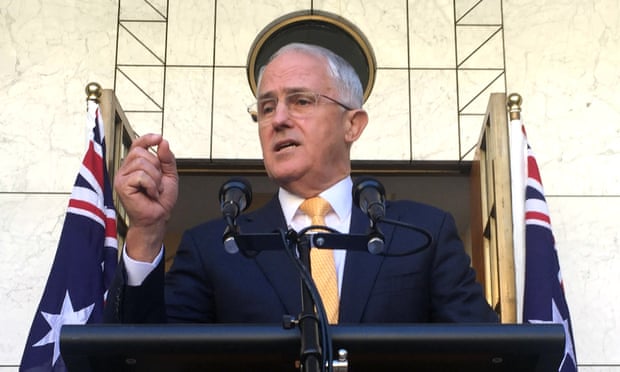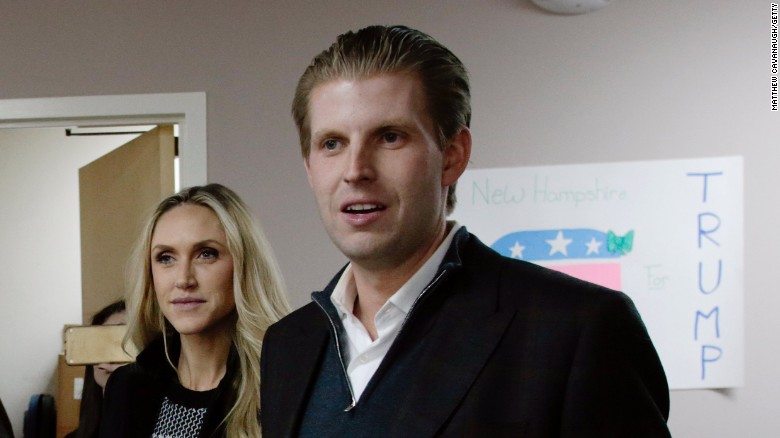It is by far clear now that Syrian president al Assad, under Russian shield, feels secure now and he is more firm than ever not to quit presidency. Russian strongman Putin who became president for third term now defends Assad who never faced – and is scared of – an election to stay in power. Possibly Putin, who promotes Russian variety of Soviet era democracy in Russian federation, feels there is hardly any difference between dynasty and democracy.
After pushing for the removal of President Assad for years, now the US, under pressure from Russia which withdrew troops from Syria possibly on agreement with Washington, seems stopped asking him to quit. This makes Assad to be firm in stay8in gin power. Russian military intervention made Assad’s stay in power fairly easy.
The main opposition, along with the United States and other Western nations, has long insisted any peace deal must include the departure of Assad from power, while the Syrian government and Russia have said there is no such clause in the international agreements that underwrite the peace process.
The UN mediated third indirect peace talks between Syrian opposition and the Syrian government in Geneva on March 20 has not made even tentative resolution to end the war in Syria or Assad’s fate. Arguments over Assad’s fate were a major cause of the failure of previous UN peace efforts in 2012 and 2014 to end a civil war that has now lasted five years, killed more than 250,000 people and caused a refugee crisis. The peace meeting in Geneva, owing to divergent opinions, also did not make any headway n revolving the political transition in Syria. The Syrian opposition assesses whether to continue indirect peace talks with the Syrian government.
The Syrian president looked more secure than ever at the start of the latest round of talks, riding high after a Russian-backed military campaign. But Russia’s surprise withdrawal of most of its forces during the week signaled that Moscow expected its Syrian allies to take the Geneva talks seriously. And UN mediator Staffan de Mistura appointed a Russian expert to sit in the negotiations with him and to advice on political issues.
Russian President Putin has warned that his forces would return to Syria if required.
Syrian government negotiators at Geneva peace talks are coming under unaccustomed pressure to discuss the fate of President Bashar al-Assad — the issue which is far outside their comfort zone and are doing their best to avoid the fate of President Bashar al-Assad.
UN mediator de Mistura describes Syria’s political transition as “the mother of all issues” and, emboldened by the Russian and US muscle that brought the participants to the negotiating table, he refuses to drop the subject. After a week of talks in Geneva, Mistura praised the opposition for the depth of their ideas, but criticised the veteran diplomats on the government side for getting bogged down. “The government is currently focusing very much on principles, which are necessary in any type of common ground on the transition,” he said, “but I hope next week, and I have been saying so to them, that we will get their opinion, their details on how they see the political transition taking place.”
Unlike previous rounds, the talks have run for a week without any hint of collapse, forcing the government delegation led by Syria’s UN Ambassador Bashar Ja’afari to acknowledge de Mistura’s demands. Ja’afari began by giving de Mistura a document entitled “Basic elements for a political solution”. “Approving these principles will open a serious dialogue under Syrian leadership without foreign intervention and without preconditions,” Ja’afari said in a brief statement after the longest session of the talks so far. But officials and diplomats involved in the talks variously described the document as “very thin”, “bland” and “off the point”. It listed familiar goals such as maintaining a ‘secular state’ and Syria’s territorial integrity and the importance of fighting ‘terrorism’, according to sources who have read it. But it said nothing about a political transition.
In sessions with de Mistura, Ja’afari has approached the negotiations as slowly as possible, reopening UN resolutions and going through them “by the letter”, said a source with knowledge of the process. “Mr Ja’afari is still in a kind of delusion of trying to filibuster his way out of town, or to filibuster the opposition out of town,” said a western diplomat. “He will spend every minute questioning the nature of the opposition, quibbling about the font in the agenda.”
De Mistura said Ja’afari’s team needed to go faster and couldn’t avoid the substantive question forever. “The fact that the government delegation would like to set different rules or play with the terms of this agreement is I think a non-starter,” said opposition delegate Basma Kodmani.
A diplomat involved in the peace process said Assad was not used to having to compromise, and that made Ja’afari’s negotiating position rigid. “He has to have control. If he gives up 1 percent, he loses 100 percent. He’s designed like that,” the diplomat said.
In three meetings with each side during the week, de Mistura quizzed the negotiators about their ideas, and they were also able to put questions to their rivals through him.
The UN mediation team spends the sessions “stripping the papers apart and delving deep into the subject and forcing them to do more homework and forcing them to give answers”, said a source with knowledge of the process.
The negotiators do not meet each other, but face de Mistura in a functional, windowless room with desks arranged in a square. There is space for eight or nine people around each side, but the conditions are slightly cramped, and afford no luxury beyond a plastic bottle of mineral water on each desk. “De Mistura is dragging the regime in with his queries on their position paper, rather than allowing them to talk about what they want,” said the diplomat involved in the peace process. The regime had in the past a bit of space to play and to manoeuvre. He said: “The regime knows it has to come and stay but is not prepared for the idea that it has to engage the opposition.”
The Syrian government so far has refused to engage in detailed negotiations and instead continuing to starve Syrians into submission, its chief negotiator has said.
Mohammed Alloush, the leader of the Syrian opposition delegation at the peace talks, suggested in a interview that little progress has been made in the first week of negotiations and many pitfalls lie ahead. Alloush, a political figure in the Jaysh al-Islam (Islam Army) rebel group, is the senior negotiator for High Negotiations Committee (HNC), the official Syrian opposition delegation at the Geneva peace talks. He is probably the single most important figure in the opposition and through his connections with Jaysh al-Islam, which Damascus and Moscow consider a terrorist group, has credibility with some fighters on the ground.
De Mistura, the UN Syrian special envoy, is struggling to persuade the Syrian government to engage in detailed discussions about plans for a transitional body to run Syria over the next 18 months and the role of Bashar al-Assad in such a government. De Mistura is shuttling between the two main delegations in search of common ground but has admitted there are large gaps.
The opposition could not accept the Syrian president as part of the transitional body and added that “those with blood on their hands can have no part in a reconstituted Syrian army”.
The new transitional body, Alloush said, should have the powers of the president, the government, parliament and the courts. He added that those charged with war crimes should be dealt with by Syrian courts and not the International Criminal Court, arguing the ICC has a backlog of 30,000 cases that would delay justice.
Alloush said his team will decide whether to continue with the talks at the end of the week and the whole world can then see clearly who is procrastinating and who is putting obstacles in the way. He said so far the Syrian government had only put forward a very general paper of eight principles that was not relevant to the task of forming a transitional government.
By contrast, he said his team had put forward detailed papers covering justice, security and political transition. “We are ready to answer all questions in detail put to us by the UN. The UN has said our paper is detailed, positive and moderate. The government paper is simply not relevant to what we have come to discuss.”
John Kerry, the US Secretary of State, is due to meet Vladimir Putin for talks in Moscow this week that will include Syria. Alloush said “America had a moral duty to increase the pressure” and, in particular, needed to intervene to persuade Russia to require Assad to negotiate seriously, including by ending the use of starvation sieges to force Syrians to abandon the resistance. He also warned European leaders to be more involved in the talks. “More refugees are heading to Europe. The international community has to tackle the root cause of this problem. We cannot just deal with symptoms. The root cause is the one person Assad who has forced millions and millions to leave their homes”. “Take Bashar al-Assad and 1,000 criminals then Syria could take back the refugees. That would be the logical and just solution for this problem. The international community is capable of doing this. More financial measures are not the answer.”
In a further sign of problems ahead for De Mistura, Alloush showed hostility to the idea of the Syrian Kurdish YPG being represented at the talks, describing them as “followers of the Assad regime”. The YPG has been excluded from the talks, partly due to Turkish protests, and the HNC has other Kurds on its delegation. He also reported no progress on the issue of political detainees, saying “we know there are 9,000 women in detention centres and none of them have been released”.
Executions were carried out daily by the Assad regime. Reeling off a list of towns still under siege, Alloush said Russian intelligence was working with Syrian intelligence to blackmail towns especially in rural areas around Damascus by offering to trade food in return for reconciliation agreements and truces. Using food like this is a war crime, according to the UN.
Alloush also challenged claims that Russia had truly announced a military withdrawal last week, and accused Russia of a reckless bombing campaign. By saying they can return to return to Syria within four hours, it is clear it is not really even a partial withdrawal. The Russians were given targets that were not accurate: 90% of the air raids were conducted against citizens. They hit 67 schools, over 40 local markets and over 100 hospitals and medical facilities. Russians said they were targeting terrorists but really they were targeting civilians but even when they target Raqqa, they target civilians. Alloush said a war like this cannot be won from the air. Russia knows that.
Source by :
http://www.eurasiareview.com/21032016-geneva-talks-on-syrian-political-transition-assad-feels-safe-oped/





 11:39 AM
11:39 AM
 Unknown
Unknown






/cdn0.vox-cdn.com/uploads/chorus_image/image/49100497/515989918.0.jpg)










